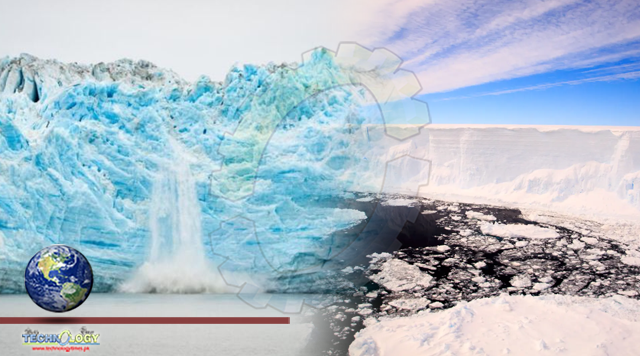Climate change is largely responsible for the huge ice melt surge, the Cryosphere study reports. In fact, about three percent of all the energy trapped within the Earth’s systems because of climate change has gone toward that ice melt, the study estimates.

The world’s ice is melting so fast that sea level rise predictions can’t keep up.
In the 1990s, the Earth’s ice was melting at a rate of about 760 billion tons per year. That has surged 60 percent to an average of 1.2 trillion tons per year in the 2010s, a study published Monday in the journal The Cryosphere estimates. And as another study published earlier this month in Science Advances makes clear, the problem is feeding into itself.
Climate change is largely responsible for the huge ice melt surge, the Cryosphere study reports. In fact, about three percent of all the energy trapped within the Earth’s systems because of climate change has gone toward that ice melt, the study estimates.
“That’s like more than 10,000 ‘Back to the Future’ lightning strikes per second of energy melting ice around-the-clock since 1994,” William Colgan, an ice-sheet expert at the Geological Survey of Denmark and Greenland, told The Washington Post. “That is just a bonkers amount of energy.”
Climate change not only melts ice sheets on land, but also warms ocean waters to melt glaciers from the bottom up as well. Past sea level rise projections have failed to account for this glacial undercutting by “at least a factor of 2” the Science Advances study found.
“Together, the two studies present a worrying picture,” the Post writes. The first study found “the ice sheets are now following the worst-case climate warming scenarios set out by the Intergovernmental Panel on Climate Change,” study author Thomas Slater said in a statement.
But the second reveals that the panel’s sea level projections, which were already criticized as too conservative, may have underestimated the role of glacial undercutting in accelerating ice melt even more.
Originally published at The week